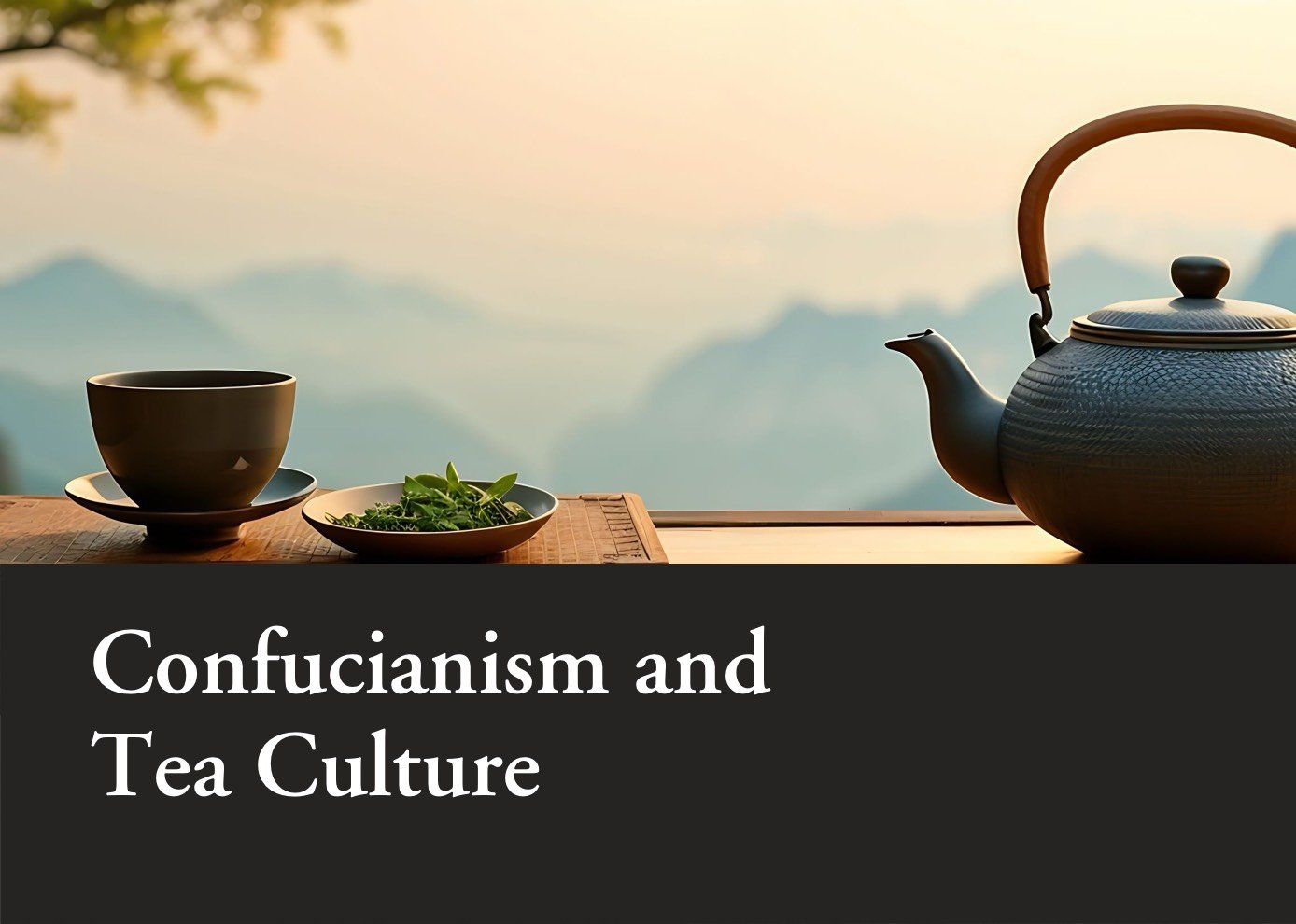Confucianism and Tea Culture
“Set your heart on the truth, hold to virtue, abide by benevolence, and seek relaxation and enjoyment in the six arts.” --- Analects of Confucius - Shu Er.
Originated in the Spring and Autumn and Warring States period, and after thousands of years of inheritance and development, Confucianism has become the mainstream thinking of the literati and has also influenced every aspect of people's lives, such as the tea ceremony.
Set your heart on the truth
It has always been a popular activity of the literati to invite a bunch of friends to sip tea and chat. " Learned scholars chat and laugh in my humble chat room, and among my guests there is no unlearned common man." Friends sharing tea are also close friends, who often share high aspirations and pursue the same path. They either talk about the world's affairs loudly with vigor and enthusiasm, and have a sip of the hot tea full of aroma occasionally, sweating and radiating energy to the fullest extent, or delight in the special tea utensils and vessels occasionally acquired, admiring the craftsmanship and taste tea, with leisure and relaxation. Both are a great joy of life.
Gentlemen sit and debate about the Tao道, the Confucian principles, which are the doctrine of mean, and also the nature of tea.

Hold to the virtue
Confucianism followers observe morality rules in their daily behavior. Like said by the Master, "The way of great learning consists in manifesting one's bright virtue."
Virtue is the basic quality of human beings. “Hold to the virtue” means we must be virtuous.
For example, when we taste tea, we should speak decently and have an upright posture, and never drink tea at the same table with those who speak rudely or are not of good character.
Abide by benevolence
Gentlemen follow rules in daily activities and never break rules, which is the Confucian benevolence.
Just like this, tea ceremony has its own rules, with setting the tea ware, sorting them and distributing them happening in a certain order, everything serving its own purpose.
Making tea starts from putting tea leaves into the pot, and ends with cleaning the cups and saying farewell to the guests, the whole process goes in a certain order following clear rules. This is not only showing respect for the tea ceremony, for the guests, but also respect for themselves.
Seek relaxation and enjoyment in the six arts
Ritual, music, archery, riding, calligraphy and mathematics constitute the six must-have arts for the Confucian followers, which basically represents profound knowledge and extensive capabilities.
When we learn the tea ceremony, we have to acquire the knowledge of tea leaves, the knowledge of tea ware, and the rules of making tea. Respecting the tea ceremony means to keep learning to understand and improve our professionalism in the tea ceremony in order to bring the best tea to our tea-sharing friends, to enchant ourselves and to serve others.
Confucianism, as a traditional Chinese culture inherited for thousands of years, is about human communication, and the tea ceremony is undoubtedly one of the most elegant and affable ways.
When we can really achieve the target of “Set your heart on the truth, hold to virtue, abide by benevolence, and seek relaxation and enjoyment in the six arts.”, we will truly understand Confucianism, and also get the essences of the tea ceremony.

All articles/videos are prohibited from reproducing without the permission of the copyright holder.




Welcome to leave a message:
Please Sign In/Sign Up as a member and leave a message